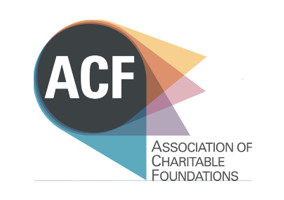NPC has urged foundations not to waste knowledge in funding proposals and use it as “collective intelligence” instead.
In a blog published last week, NPC’s director of innovation and development, Tris Lumley, called for a change in “the very structure of philanthropy” so that “our efforts with technology can succeed”.
Lumley wrote that the knowledge contained in funding applications can be lost and that it should instead drive and inform philanthropy.
Funding proposal is ‘knowledge process’
Lumley said that a funding proposal is “a knowledge process” and that once a foundation has chosen which organisation to fund this knowledge “gets thrown away”.
Instead, he argued, funding applications should be “primarily about collective intelligence, not competitive selection”.
“Imagine for a moment the countless non-profit leaders around the world, the millions of hours they spend pouring their experience, passion, insight, and commitment into these forms. And what comes out of it is money, or no money.
“How dare we ignore all the value in those answers? All the insight and possibilities in these processes? And if we don’t have enough money to go around, why don’t we think about what could be possible if we harness that knowledge, rather than burying it?”
He added: “I believe the selection process funders can become the scaffolding for our collective knowledge infrastructure – one that drives and informs philanthropy, not the other way around.”
Philanthropy is ‘broken’
Lumley said that philanthropy is “broken” and that “no individual foundation or philanthropist can succeed in their strategy”.
“They don’t have enough money compared to the scale of the challenge they seek to tackle. So their response? Rationing – via competition.
“Some foundations will call for proposals. Everyone sends in their best sales pitch in, and a few lucky winners get picked for funding. But it’s only enough to fund part of the work, for at best a few years. Proactive foundations don’t call for proposals, but they’re still competitive. They do research, talk to advisers, make decisions, then inform the lucky charities. The competition has already happened by that point, it’s just that no-one outside the foundation sees it.”
Using technology to transform philanthropy
Lumley also spoke about the role of technology and data in reshaping philanthropy.
“Technology can help us to bring together diverse perspectives, capture knowledge, create insight, facilitate collective decision-making. Already the technology community has pioneered ways of working together through open source. And the great thing is that foundations who come from a tech background know this. They know that there are alternatives to competition,” he said.
He added: “People in philanthropy talk about shifting the power. So far, I’ve seen more talk than action. But if we build the structures that power can be shifted to and then show that we're ready to take it...
“To the non-profit leaders out there, it's only a zero-sum game if we play that game! The real prize here is for us – the non-profits, the doers, the makers, the troublemakers. It's not us against each other, it's us together against all odds. To really win, we need to organise, with purpose and solidarity. If the sector comes together to set the agenda – acknowledging difference and diversity of perspective... If we can put our similarities before our differences, our shared goals before our disagreements, then we can take the lead.”
Related articles












